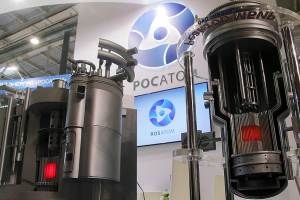Ru
|
Eng
Rosatom invites Belarus to contribute to fast-neutron research reactor operation project
16.12.2016

Belarus will be able to take part in the operation of the international research center based on a multipurpose fast-neutron research reactor. Vyacheslav Pershukov, Deputy Director General, Director for Innovation Management of the Russian state nuclear industry corporation Rosatom, made the statement during the online conference hosted by the BelTA website on 15 December.
The Rosatom executive said: “We intend to use the multipurpose fast-neutron research reactor to set up a modern research platform not only for Russia but in essence for the entire world. Rosatom is open to mutually beneficial cooperation in this project with all the interested parties. This is why we got the idea to set up an international research center based on the multipurpose fast-neutron research reactor. Rosatom offers a unique opportunity to foreign partners. They are invited to participate in creating the research infrastructure that will help tackle topical scientific tasks to substantiate innovative reactor concepts. The research infrastructure will be compliant with state-of-the-art requirements.”
In his words, a universal research plant with an intensive neutron current cannot be built on a small scale or as individual modules. The high cost of the project is unavoidable. “The fact led us to embrace the IAEA-sponsored idea of setting up regional collective-access centers where one reactor can satisfy needs of many countries. Today we invite our Belarusian colleagues to take part in the operation of the international research center based on a multipurpose fast-neutron research reactor,” said the Deputy Director General.
The main purpose of the reactor will be to carry out multiple tests of innovative materials and models of active-zone components for fourth-generation nuclear energy systems, including fast-neutron reactors with a closed nuclear fuel cycle, as well as fast reactors with small and medium outputs.
An overwhelming majority of the reactors used for materials research all over the world were commissioned over 40 years ago. The international scientific community is starting to experience a shortage of modern large research reactors, which are vital for developing fourth-generation nuclear technologies, for extending the service life of existing reactors and improving their effectiveness. “By 2020-2025 or very soon the capacity of the international experimental infrastructure will be exhausted to a large extent because many research reactors will run out of service life or will not have the necessary research capabilities,” believes Vyacheslav Pershukov.
SCIENCE. TECHNOLOGY. INNOVATIONS
13.08.2024
28.06.2024
28.06.2024
25.06.2024
05.06.2024
15.05.2024
15.05.2024
26.04.2024
26.04.2024
26.04.2024













